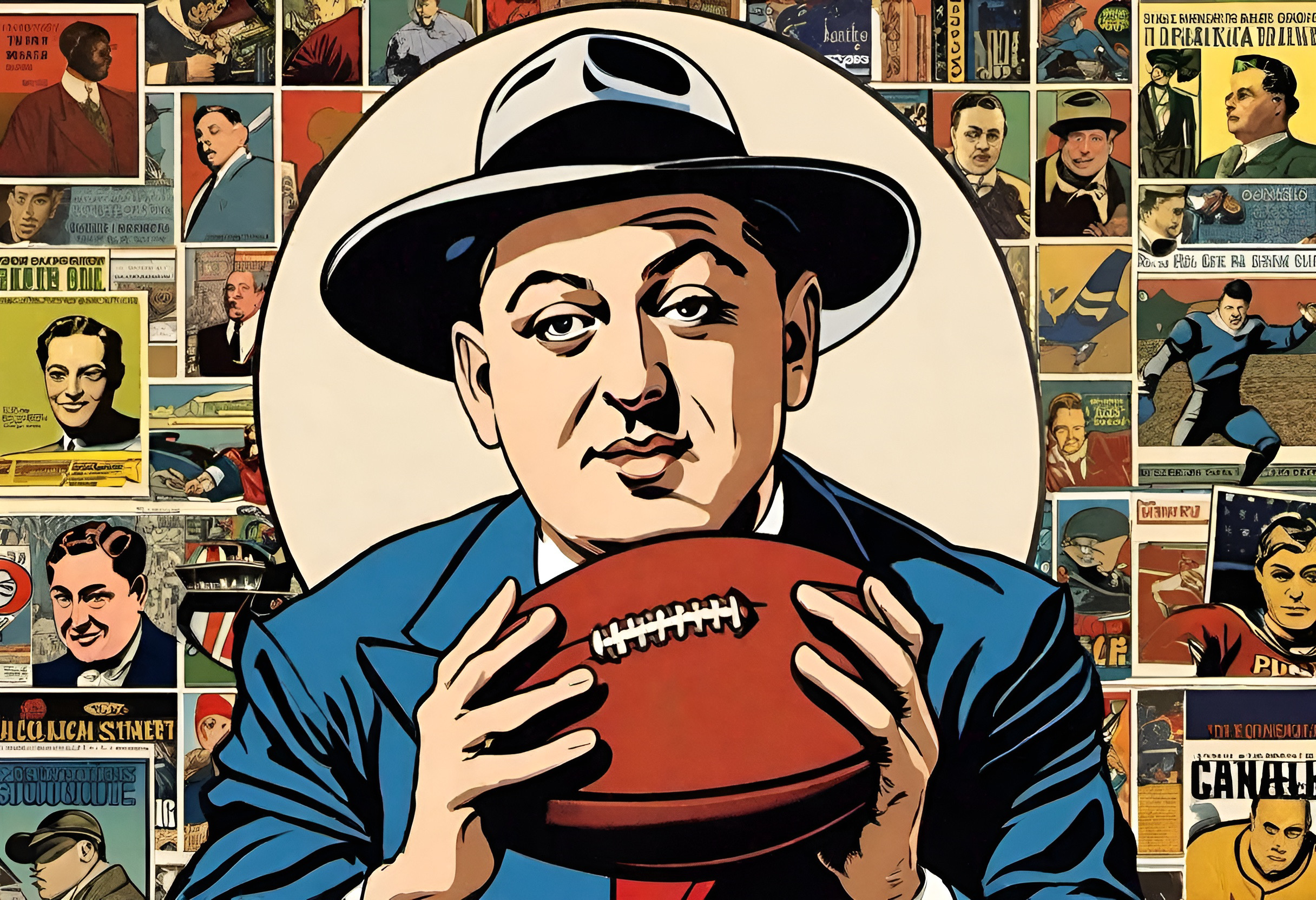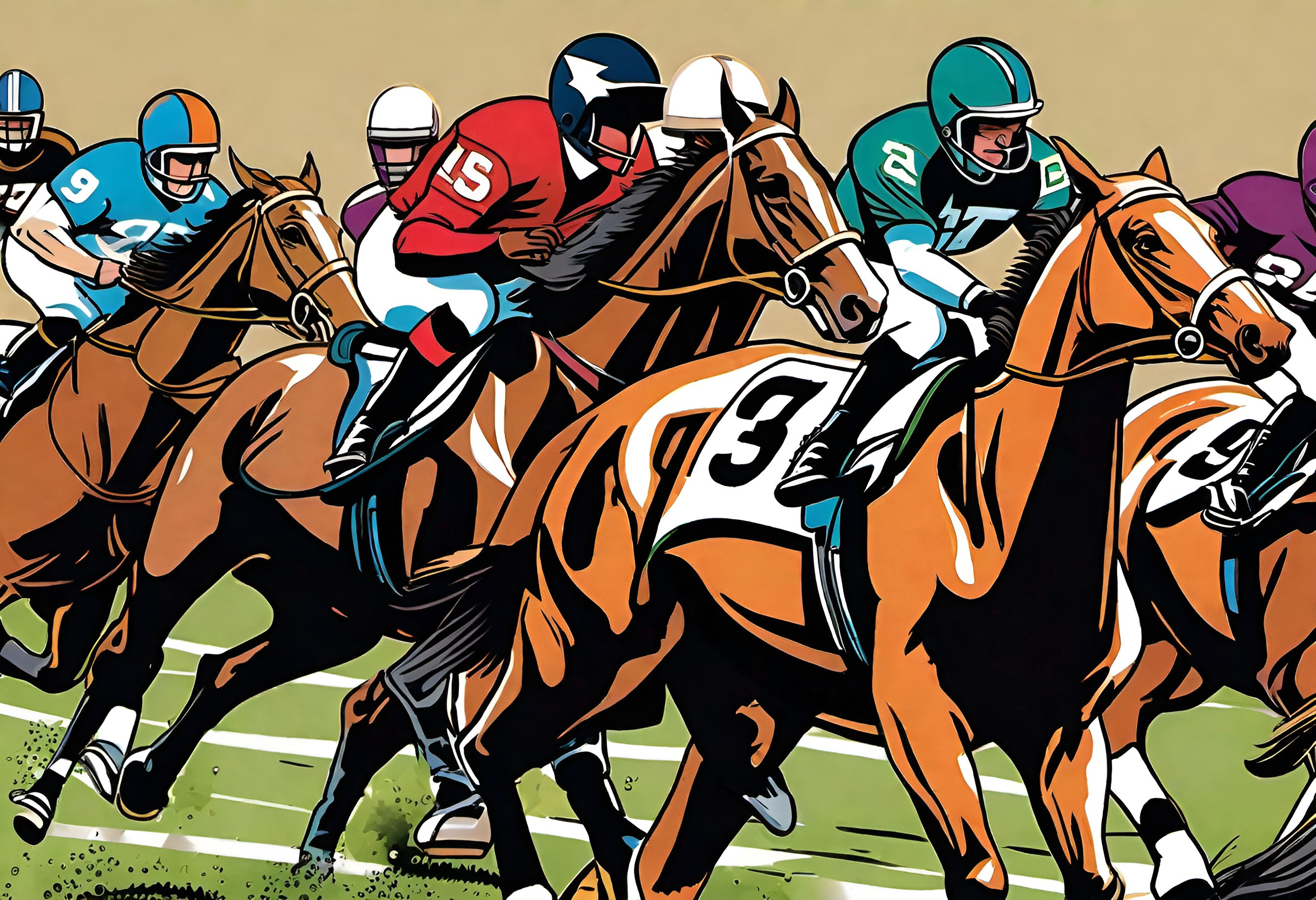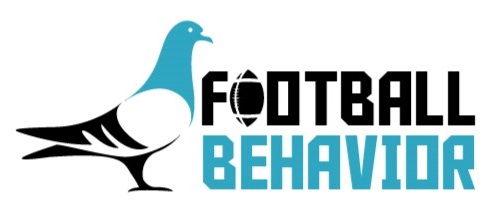Dutching in sports betting goes back many years and is used primarily with horse racing, or with events that can have multiple outcomes. It is rarely used in team sports betting. However, if used correctly, and can be a good way to boost your profits and your ROI. Here is how we use dutching in sports betting at Football Behavior, leveraging behavior science with the data we get from our prediction model, Pigeon Picks.
What’s the Dutching Meaning?
Dutching is a betting strategy used to spread risk across multiple outcomes in a single event. The idea is to place multiple bets on different possible outcomes to ensure a profit regardless of which of the outcomes hits. Typically, it is used in racing where the field of competitors is large. You don’t typically see it used in team sports, like Football since it is perceived there are only two competitors in the field, Team A and Team B. At Football Behavior, we have taken it further.
Where Does Dutch Betting Originate From?

Dutching: Dutch Betting gets It’s Name From Legendary Mobster Dutch Schultz
The practice of dutch betting is named after Arthur Flegenheimer, a 20th-century American gangster known as “Dutch Schultz,” who was involved in various illegal activities, including gambling. Schultz was determined to run the most profitable “numbers” racket in New York. Since the actual practice of dutching is predicated on securing a profit, that’s how it got it’s name.
After making his name in the bootlegging and speakeasy business, he needed a way to supplement that income once prohibition ended. He got involved in the “numbers” lottery game in New York where he went head to head with established gangsters like Stephanie St. Claire. Eventually he was murdered, and when he died, he was rumored to have used his last words to allude to a vast hidden fortune of all the profits he had accumulated as an illegal book maker.
However, the term “Dutching” in sports betting has no direct connection to Schultz in practice; it’s a betting strategy that evolved independently. Shultz is not known to have actually practiced the strategy himself. Due to it’s strategic use, it is simply named after him.
What’s an Example of Dutch Betting?
Football Behavior uses dutch betting to secure a profit betting on NFL games. The practice began in horse racing because of the opportunity to bet on multiple horses in the same race. If any one of the horses you bet on wins, you secure a profit that more than covers the losses from the horses you bet on that did not win.
While there can’t be multiple winners in an NFL game between two teams, there can be multiple possible outcomes as to how much the winning team wins by, or winning margins. Because our Pigeon Picks prediction model gives us an exact final score prediction based on the most likely behaviors of the teams involved, it also is able to provide bettors with a range of potential outcomes inside of something we call the bounce envelope, which is explained in our glossary of terms.
Here is an example of dutch betting with NFL winning margins:
New Orleans Saints vs. Carolina Panthers, 9/19/2023.
- Saints Win By 1-6 +280: Bet of $13.85
- Saints Win By 7-12 +450: Bet of $9.57
- Saints Win By 13-18 +700: Bet of $6.58
- If any one margin hits: Net Profit of $22.63
The Pigeon Picks model predicted a Saints victory by a score of 23-18. The behavioral data that the prediction was based on suggested the Saints had very little chance of losing and that the three most likely outcomes were a Saints victory by 1-6 points, 7-12 points, or 13-18 points.
So, we took our total stake of $30 and spread it proportionately, using a dutching calculator to be precise, across those three winning margins. If any one of those margins hit, we would be guaranteed a net profit of $22.63.
The Saints won 20-17, hitting on the 1-6 point winning margin.
You can take advantage of all of our picks and analysis using behavioral science by signing up for the FREE Football Behavior Newsletter!
Is Dutching and Matched Betting the Same?
Dutch betting and matched betting are two distinctly different betting strategies used by gamblers to increase their chances of making a profit, but they have different approaches and goals. Here are the key differences between Dutch betting and matched betting:
- Objective:
- Dutch Betting: The primary objective of Dutch betting is to spread your bets across multiple outcomes of an event in a way that guarantees a profit if any of those outcomes occur. Dutch betting aims to minimize risk and secure a consistent profit, but it may not always result in a substantial return.
- Matched Betting: Matched betting is a strategy that takes advantage of free bets, promotions, and bonuses offered by bookmakers to guarantee a profit regardless of the outcome of an event. It involves placing two opposite bets (a back bet and a lay bet) on the same selection to cancel out the risk, using the bookmaker’s offer to ensure a profit.
We advocate for dutch betting because we take a behavioral science approach to betting, and dutching in particular. Matched betting is reliant on the book makers offering promotions that have little to do with the behavior of the performers on the field. Not that matched betting isn’t profitable, it’s just not what we do.
How Does Dutch Betting Work?

Dutching: Commonly Used In Horse Racing, Also Work For Betting On Football
Dutch betting was primarily focused on horse racing. It was a way for bettors to pick multiple horses in the same race. This allowed them to spread out the risk of their stake, and secure a profit if one of those horses won. Picking three or more horses has a better chance of hitting then letting it ride with just one.
Think of a roulette table in a casino. Most people don’t simply play any one number. Instead they lay “red” or “black”, or, “even” or “odd”. More outcomes means more opportunity for a win, and a profit. So how do we use dutching in betting on football games if there are only two competing teams and only one can win?
Most NFL games are decided by seven or less points. There is so much parity that the phrase “any given sunday” really does have a lot of meaning. So while our prediction model gives us final score predictions and hits around 67% of the time since 2022, we like to spread out risk to further increase your chances of a profit.
While there can’t be multiple winners in an NFL game, there can be multiple score outcomes. More specifically, the margin the winning team wins by can vary greatly. Using behavior science and our prediction model, we choose what we believe are the three to four most likely outcomes for a winning margin, and spread out stake out proportionately across those margins. If one hits, we profit!
How to Win When Dutching
The biggest tip to keep in mind when dutching is to ensure the odds you include are “plus” odds. In American odds at the sports books, you’re looking for each winning margin to have odds of +100 or higher.
Individual winning margins are typically +280 and higher. The greater the margin, the higher the odds. For context, a bet of $100 on +280 odds means if you win, you profit $280. If the three winning margins you select have odds of +280, +450 and +700, a bet of $100 proportionately spread across them would net you over a 75% return if just one of them hits.
How to Lose When Dutching
The easiest way to lose when dutching is to be undisciplined and deviate away from what the data tells you. That’s why subscribing to our Pigeon Picks is so helpful. We provide you not just with picks, but with behavior profiles and risk reports for each team.
If you select winning margins that are unlikely to hit, you lose your whole stake. For example, NFL games decided by 14 or more points are typically outliers. So choosing a margin band of 18 or more points is very unlikely to hit.
Likewise, if you don’t take into account that for the most part, the underdog team likely has a better than 30% chance to win, you could miss out on capitalizing on them winning by 1-6 points. Even if you think the favorite will pull it off, some favorites are not strong enough to be locked in. Failing to pick a winning margin for the underdog could cost you if they pull a close upset.
Top Sports For Dutching
- Football
- We are the trend setters for using dutching in the football space, but for good reason. Using behavior science and understanding the parity level in the NFL, dutching winning margins is a great way to limit risk and secure a profit, which is the only thing that matters in sports betting. In fact our 40% ROI* since 2022 is in many ways due to dutching.
- *3-6% ROI is considered excellent by professional sports bettors.
- Horse Racing
- This is where it all began for dutching. Since there are many competitors in a single event, this is a natural go-to for the dutch betting strategy.
- F1 Racing
- Formula One racing is no exception to the racing origins of the dutching sports betting strategy. Multiple competitors in a single event. With the sports rapidly growing popularity, this could be a way for bettors to make some money
- NASCAR
- Sense a theme? Racing uniquely fits the mold for dutching, which is why so many people use it.
- Basketball
- Since we at Football Behavior have established the model for using dutching in team sports, the opportunity exists to expand on that. Basketball winning margins is a popular prop bet and could provide value to bettors who wager on the games.
- Baseball
- Same as basketball with an even more narrow range of outcomes. Few baseball games are decided by double digit runs.
Dutch Betting Tools Available Today

Dutching: When Dutching, Make Sure You Use A Dutching Calculator
Anyone who is using dutching in sports betting should be using a dutching calculator to ensure the precise bets to place on the different legs of the bet, to secure the profit. Currently, we use our own dutching calculator out of an excel spreadsheet, but various companies like OddsChecker have one for users to take advantage of.
Additionally, you should be using multiple sportsbook apps, and not just one. The books often give different odds from one another for the same events. Using multiple will allow you to get the best possible odds.
Top Tips to Remember When Dutching Sports Bets
- Ensure that the legs of your bet have “plus” American odds (+100 or higher)
- When dutching in football, ensure that you account for underdog to potentially win if the favorite has behavioral vulnerabilities
- Use a Dutching calculator to ensure you are allocating the proper amounts on each of the legs of your bet
- Use multiple sportsbook apps so you are taking advantage of the best odds available
- Experiment with dutching when there is opportunity for multiple outcomes on any element of a sporting event
Dutching Betting FAQ
- What does dutch betting mean?
Dutch betting means to spread your risk across multiple outcomes for a single event. Commonly used in horse racing, we use it for betting on football.
- How do you calculate dutching?
Use a dutching calculator to calculate your dutch bets. You’ll be spreading your total stake proportionately across the legs of your bet and will want to be precise to secure a profit.
- Is dutching profitable?
Dutching can be profitable if you select the right legs of the bet. Dutching gives you a better chance of a profit because it spreads out the risk and increases profit opportunities.
- Where did dutch betting come from?
Named after a notorious gangster, its first use was in racing. While Dutch Schultz never used dutching, he was driven to secure profits for his criminal enterprise. Dutching aims to do the same, minus the criminality.
- What are the best sports for dutching?
We think the best sport for dutching is football. The parity in the NFL and the behavioral profiles of the teams gives us great opportunity. Most commonly, dutching is used in racing.
